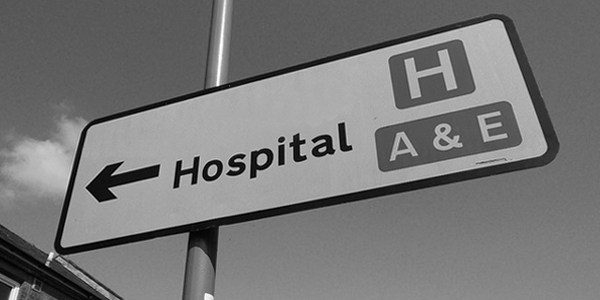On the front line
This week, the health regulator Monitor announced the appointment of a trust special administrator at Mid Staffs after they concluded that the services currently provided were neither clinically nor financially sustainable. This brought into focus again the failings identified by...
This week, the health regulator Monitor announced the appointment of a trust special administrator at Mid Staffs after they concluded that the services currently provided were neither clinically nor financially sustainable. This brought into focus again the failings identified by the Francis report, in particular the need to concentrate on a few universal truths and make changes at various levels across the health and social care system – including the front line.
‘You get the best effort from others not by lighting a fire beneath them, but by building a fire within.’ Bob Nelson
Those providing care are the custodians of their organisation. They determine whether care is safe and high quality. Selection, leadership and training are central to effective staff and healthcare – they determine culture. Change needs to start here, with training focused on the front line. It needs to be practical, relevant and often. Most importantly, it must be targeted at the emotional and behavioral level, so that people live and breathe the values of the NHS (recommendations one to eight of the Francis Report). Once staff are committed to these core NHS values, they internalise and share them, which, in turn, allows them to express themselves, speak out and perform at their best. When this happens a new culture emerges with new expectations. People start to be mindful of themselves and others, they change the way they work and this, in turn, fosters greater inclusion, teamwork and personal development. It becomes a self-perpetuating process and an uplifting experience for all. Most people have experienced working in such an environment – we know how it looks and feels. This is not how it felt at Mid Staffs.
Francis is quite right to focus on leadership too (recommendations 214 to 221) as critical to bringing about these changes, but he is wrong in thinking that legislation will bring about the desired result – either through the statutory duty of openness and transparency (recommendation 178), candour (recommendation 181) or non-compliance with essential safety, quality and developmental standards (regulation 28) leading to criminal liability. These recommendations run counter to the earlier diagnosis and are more likely to undermine the development of a no-blame culture, and encourage defensiveness.
It is only by changing the behaviour of everyone within the system, including those at the top, that cultural change will happen and essential standards be upheld. This cannot simply be left to current NHS providers. Many NHS hospitals have great leadership and they will rise to the challenge of Francis, but those that need most to heed the lessons of Francis, too often lack the money, skills and expertise to implement the changes with sufficient vigour and pace. Training needs to be universally available and targeted at those hospitals that are average and below, with sufficient resources, and with clear expectations and standards. It should also be adopted in other parts of the health and social care system. As culture change is hard, slow and subject to frequent relapse the effort needs to be consistently applied to be significant and permanent.
Leadership training should not be just focused on senior staff or managers; it should be for all healthcare workers equally. In the armed forces, considerable resources are targeted at the sub-unit or platoon level and the same could be adopted in hospitals with a renewed focus on leadership at the unit or ward level. At every level, people need to know that selection and promotion will depend on how they bring to life the values of the NHS in their day to day work. The governments plans to set up a fast-track leadership training scheme to give clinicians and those outside the NHS a ‘passport into NHS management’ is a welcome distraction from the more fundamental changes to leadership and training on the front line.
The NHS leadership academy and current management training schemes go someway to aspiring to these goals but not far enough. I therefore support the Francis recommendation to establish an NHS staff college (recommendation 214) and would ensure that participation is extended to all staff – tailored to seniority, experience and role. The programme should be required learning for every healthcare professional. It should be practical and assessment based for current NHS staff and those entering the service; all need to orientate, re-acquaint and live the values of respect, dignity, compassion, teamwork and a commitment to quality.
Wherever possible this training can be integrated within existing programmes and reaffirmed through ongoing local training when people return to their place of work. Many of the Royal Colleges and professional bodies already accept the need for a radical injection of training to support NHS values into clinical training programmes, and for behaviour and attitudes to be a central part of the selection for healthcare professions. This is a good foundation to build on, but we need to go further and ensure that the current NHS workforce also benefits from learning how they can put their values into practical reforms at the front line. The newly established Health Education England (HEE) and their local education boards should be targeted with developing a programme to educate and support the whole NHS over the next three years. Change of this magnitude will not happen overnight, a sizeable and sustained investment will be needed (a significant portion of the £5bn spent on training in the NHS) – the rewards will be worth it.
